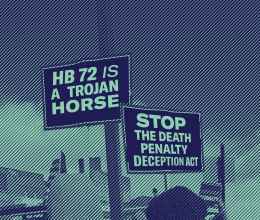“Remember the ladies.”
In March of 1776, before the laws of the land were finalized, Abigail Adams wrote to her husband, John Adams, to remind him the Constitution should not limit freedom to men. She cautioned if women were not included, “we are determined to foment a rebellion, and will not hold ourselves bound by any laws in which we have no voice or representation.” Her warning was ignored, birthing the fight for equality.
Many attempts to bring equality to women happened over the years, including countless petitions for women’s suffrage to women illegally voting. Women activists called on men to recognize their hypocrisy of wanting liberty and freedom from Great Britain but refused to extend these protections to women.
Ohio’s Activism
Ohioan Frances Dana Gage was an activist and writer. At a young age she had a deep passion for ending slavery by assisting runaway slaves in finding refuge. She also was very active in women’s rights activities within Ohio.
In 1851, Gage assisted in organizing a women’s rights convention held in Akron, Ohio. The famous “Ain’t I a Woman” speech was delivered by Sojourner Truth, criticizing the inequality African-American women receive based on both their gender and race.
This speech was later transcribed by Gage. Although widely used, the accuracy of the transcription has been debated. However it was stated, the sentiment of Truth’s message remains the same, “women are as strong and smart as men are and deserve the same rights that men have.”
The rest of her life was spent publishing for newspapers, books, and lecturing, all of which were criticized as too radical. Because of her fearless actions of voicing her opinion, her family often received threats of violence. She spent her last years writing, passing away in 1884. Despite of her work, Frances Gage did not see women gain significant rights.
By 1870, there were more than 30 groups in Ohio working on smaller scale advocacy to address women’s equality. Eventually Ohio Woman Suffrage Association (OWSA) formed, the first statewide organization that focused on ending laws that stopped women from voting. OWSA was also one of the first groups to work on ending discrimination for all women, regardless of race.
Is the Feminist Fight Over?
Historically, the women’s suffrage movement ended in 1920 when women were finally given the right to vote, but many women today still feel inequality in their lives.
Reproductive rights are under attack in Ohio, from attempting to pass severe abortion restrictions to women being fired for becoming pregnant.
In the 2015 Ohio Budget Bill, there’s a provision cutting Medicaid coverage for expectant mothers. Despite the state’s grave infant mortality rate, a single pregnant woman without children will only qualify if her annual income is under $21,707, a drop of nearly $10,000. Taking away options and not protecting women’s health is a clear sign of inequality.
The ACLU recognizes the inequality that Ohio women still face and will work tirelessly to end such discriminations.




